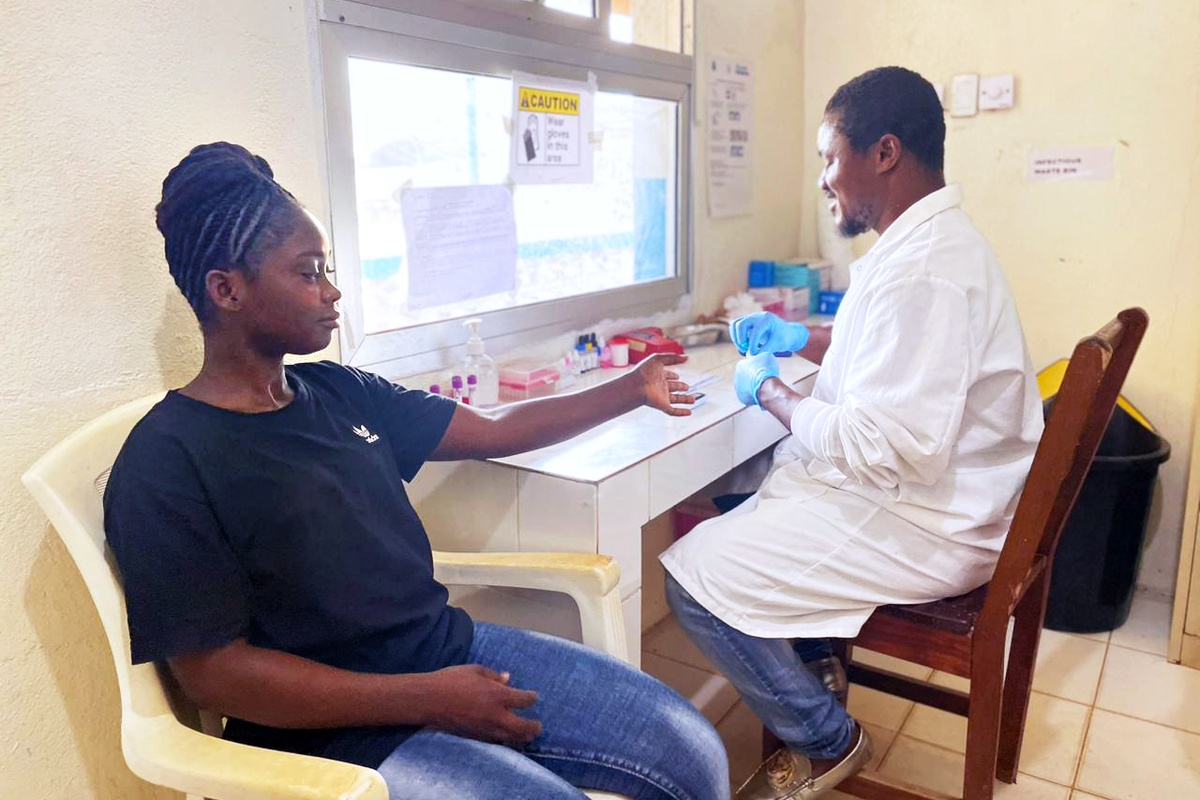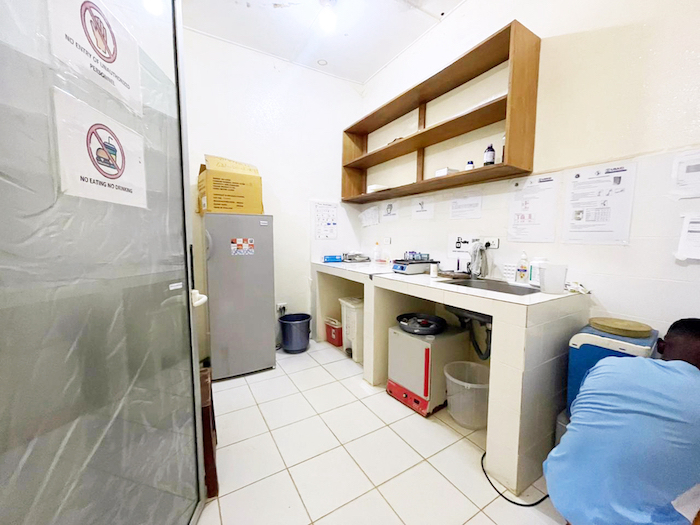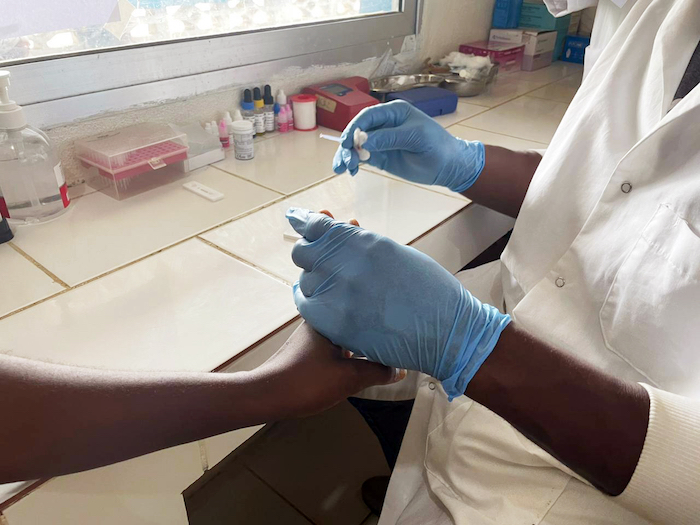Pleebo Health Center Laboratory Increases Capacity, Adds New Equipment
The laboratory provides essential health services for thousands of people in the region
Posted on Feb 7, 2023

For years, the Pleebo Health Center laboratory consisted of a single room. In that room, limited medical testing occurred for more than 50,000 Liberians. Although the laboratory was functional, it faced many obstacles.
For example, specimens couldn’t be processed there. Instead, they were taken to Partners In Health (PIH)-supported J.J. Dossen Memorial Hospital in Harper—about 16 miles away. There were often delays, which meant the samples had to be recollected. And, clinicians were unable to test patients on-site for tuberculosis or HIV (both common in the region). The necessary machines weren’t available. The lack of space and limited diagnostic equipment were major challenges for both clinicians and patients.
In 2022, significant improvements were made: more space and stuff were added—two of the five S’s essential to strengthen health systems. Now four rooms, the laboratory is also equipped to test blood, urine, and hemoglobin A; and diagnose tuberculosis and HIV—which wasn’t possible before the expansion.

Often overlooked, labs are critical for diagnosing a patient’s condition, explains Isaac David, Jr., officer in charge at Pleebo Health Center.
“The lab is now closer to those who cannot afford to travel to far places to do their tests. The tests are also free…and treatment is provided 24/7,” says David, Jr.
Laboratories run tests related to disease prevention, diagnosis, and treatment. With the expanded space, the center is able to hire enough laboratory personnel to quickly assess and identify potential health problems. Notably, the lab can now test viral loads—the amount of virus detected in patients with HIV. The optimized space is also newly equipped with machines such as the GeneXpert machine, which is used to diagnose and monitor the treatment of tuberculosis; and a complete blood count machine to measure red blood cells, white blood cells, and platelets.

With these improvements, staff are encouraging community members to use the free health services.
“Our goal is to give preferential diagnostics to marginalized [people]. Pleebo Health Center has a high patient load, which means they are not getting the ideal patient care. For us, we are improving diagnostics. It means the patient gets the right treatment and care because of the right diagnostics,” says Arnold Ayebare, PIH Liberia’s laboratory manager, who oversaw the expansion project.

